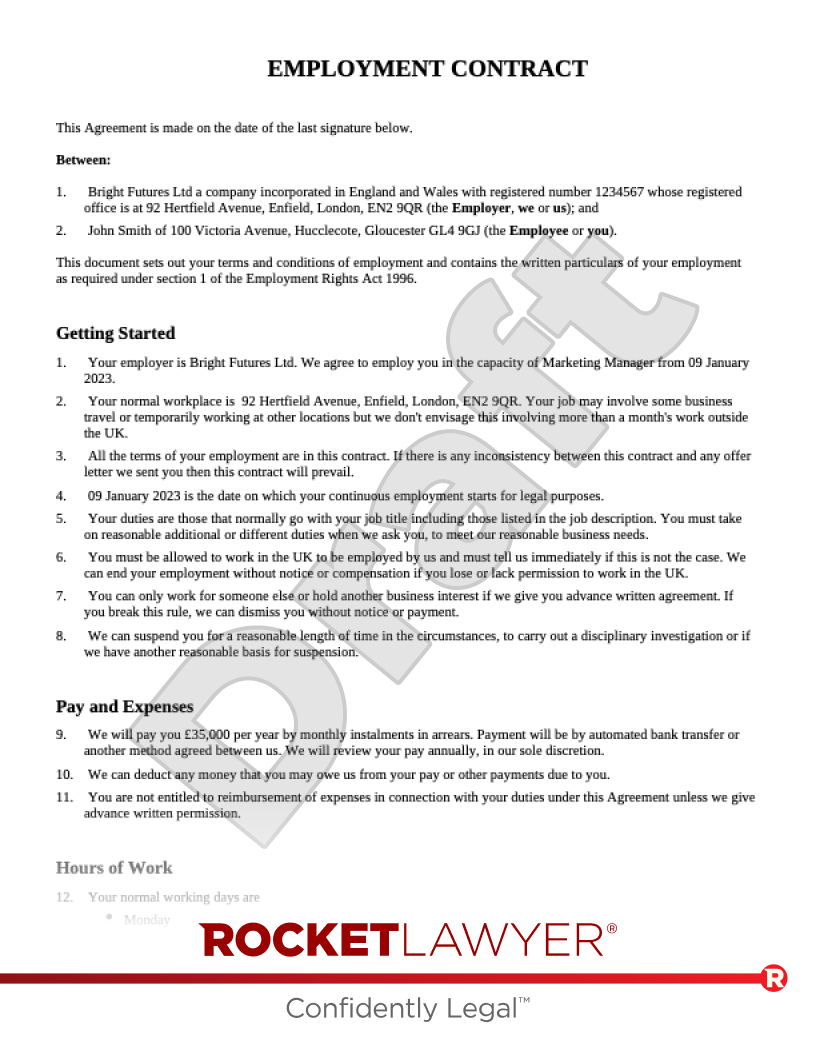How much should wages be?
How much a staff member is paid must be communicated in a written statement of employment particulars. This document must be given to all employees and workers on or before their first day of employment. Often, the written statement of particulars will form part of the staff members’ contract of employment (eg an Employment contract or a Zero hours contract).
Generally, the rate of pay is to be agreed upon between the employer and the staff member. In some cases, it may be set by a collective agreement between the employer and a trade union. However, care must be taken to ensure that staff members' basic hourly rates comply with the minimum wages.
Staff members also have the right to equal pay (ie not to be paid less because of their sex). They also have the right not to be paid less because:
-
of their race or ethnicity
-
they work part-time
-
they are temporary staff (eg a fixed-term worker)
For more information on equal pay, read ACAS’ guidance.
When are wages paid?
Generally, wages are paid on a monthly basis for salaried employees (ie employees that receive an annual salary). Anyone paid by the hour (eg casual staff) will typically receive their wages weekly or monthly, depending on their specific situation. However, some employers may also pay their staff at different frequencies (eg bi-weekly).
How frequently a staff member is paid must be communicated in a written statement of particulars.
Can the payment date be changed?
Employers can typically change employment terms (including when or how frequently someone gets paid). Employers should discuss the proposed changes with their staff and come to an agreement. A Change to employment terms letter agreement can be used to record any changes in writing.
Failure to consult with affected members of staff and simply imposing the change can result in a breach of contract giving the staff member a legal claim. For more information, read Changing employment terms.
What is a payslip?
A payslip is a document employers must give their employees and workers on or before their payday. Payslips can be provided in print or electronically (ie online).
There are only limited circumstances in which a payslip does not need to be provided, including if the staff member:
-
is not an employee or worker (eg a consultant)
-
works in the police service
-
is a merchant seaman
-
is a master or crew member working in share fishing
Payslips can be used as proof of earnings, income tax paid and pension contributions.
What information must payslips include?
Payslips must set out:
-
a staff member’s pay before any tax or national insurance (NI) deductions are made (the ‘gross pay’) - tax and NI are often deducted through Pay As You Earn (PAYE)
-
the amounts of any variable deductions (ie those that vary from payday to payday, like tax or NI)
-
the total amount of any fixed deductions (ie those that don’t vary from payday to payday, like union subscriptions or repayments of a season ticket loan) - these can also be set out in a separate written statement provided once per year
-
a staff member’s take-home pay after all deductions (the ‘net pay’)
-
the number of hours the staff member worked, if pay depends on the amount of time worked (eg for zero-hours workers)
-
the amount and method of any part payment (eg separate figures for any cash payments and any payments to a bank account)
For more information on deductions employers can make, read Deducting employees' wages.
Can payslips include other details?
At the employers’ discretion, payslips can also include extra information, including a staff member’s:
-
tax code
-
national insurance number
-
pay rate (annual or hourly)
-
additional payments (eg any bonuses, commissions, tips or overtime) - these must be included in the gross pay figure
-
payroll number (ie a number that identifies the staff member on the employer’s payroll)
What if there is a problem with my payslip?
If there’s a problem with your payslip (eg you didn’t receive your wages in full or you didn’t receive a payslip), you should speak to your employer - you may be able to resolve the issue informally and internally. If this doesn’t work, consider speaking to your trade union representative, ACAS or Citizens Advice.
For more information on payslips, see the Government’s guidance and the MoneyHelper guidance.




